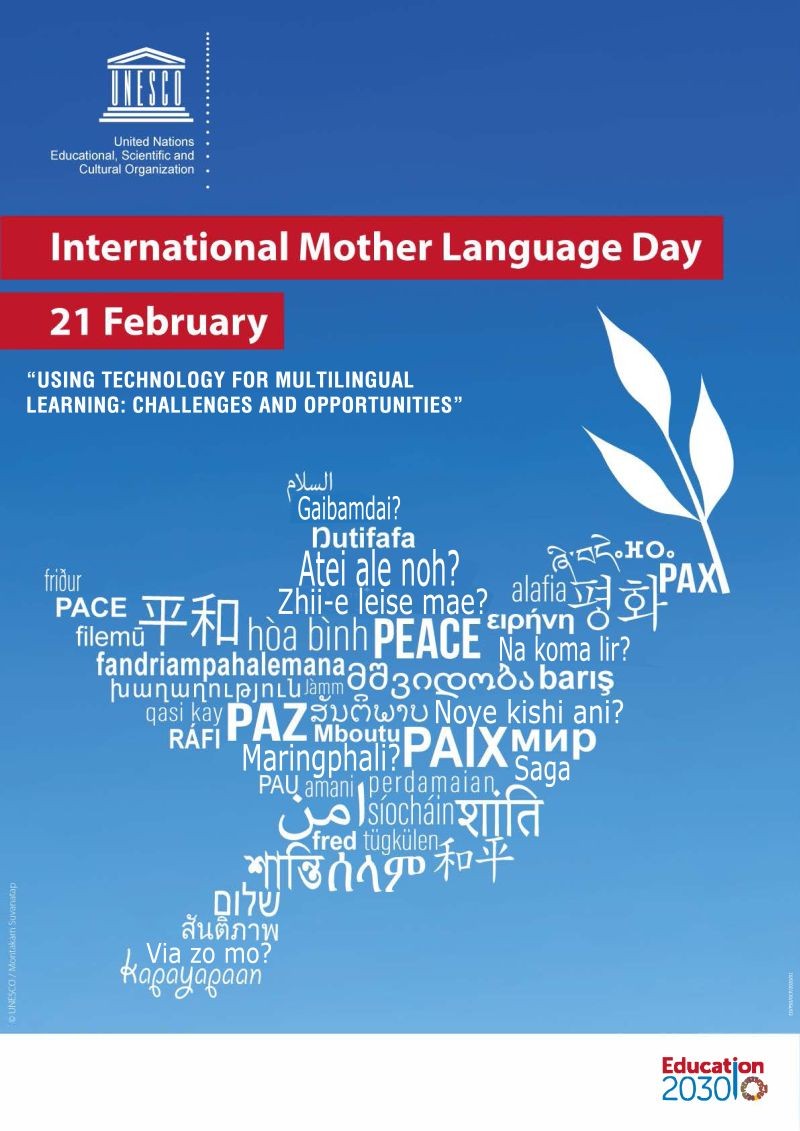
21 February is International Mother Language Day
Morung Express News
Mokokchung | February 20
International Mother Language Day is observed every year on February 21 to promote linguistic and cultural diversity and multilingualism. The theme of the 2022 International Mother Language Day is “Using technology for multilingual learning: Challenges and opportunities.”
The theme is focussed on enhancing the role of teachers in the promotion of quality multilingual teaching, learning and reflecting on technologies and its potential to support multilingual teaching and learning.
On this note, Dr Lanurenla, a member of Ao Senden Literature Board (ASLB) noted that in the present Naga context, our mother tongue is endangered because the community does not attach value or importance to their mother tongue.
“Inability to codify or standardize our mother tongue, foreign language playing a dominant role in our day-to-day functions, lack of concrete effort towards preserving our heritage and developing our language and influence of dominant culture, sub-cultures and languages over the younger generation of the Nagas are some of the major reasons for the decline in the importance of mother tongue,” said Dr Lanurenla, who is also an Assistant Professor in the Department of English, Fazl Ali College.
Similarly, K Temjen Jamir, Editor of the daily vernacular newspaper Tir Yimyim, asserted that mother languages are losing its importance, particularly, amongst urban youth and children.“Mother Language is not only a word; it has its own flesh and blood. It has its own socio-cultural, eco-political and religious values,” he told The Morung Express.
Concerned over the loss of value and importance of mother languages, K Temjen said “Losing one’s mother language is tantamount to losing connection with its own progenitors and losing roots of its own origin. The one who cannot speak her or his own mother language find themselves disconnected from their own descendants. Consequently, they forget their village, tribe, clan and values of good tradition and culture and made themselves foreigners in their own native land.”
The existence of many languages is under danger, since some are becoming extinct. UNESCO believes that 40% population of the globe has little or no access to education in their first language.
According to Dr Lanurenla, institutionalizing the language by introducing multilingual studies in schools, colleges and universities; introducing the study of grammar and literature of mother tongue; writing quality research papers in mother tongue; introducing policies that promote mother tongue in churches and other organisations; encouraging writers; and setting up language boards academies that will focus on the development of mother tongue are some of the measures towards preserving mother language.
K Temjen also underscored that the state government must adopt and implement the new national education policy immediately where more importance is given to impart mother language from primary level.
Meanwhile, J Nungsang Longkumer, an autodidact in Ao language, is of the opinion that Naga tribes are continuously working towards improving and preserving mother language which is often overlooked. “The Ura Academy and Lotha academy were set up in 1977 and 1992 respectively and they are functioning as a full-fledged academy focussing on developing and preserving mother language, which I believe the other tribes should follow suit,” he said.
“Using technology as simple as the radio and the television and documenting our various traditional songs and stories can help in preserving our mother language. However, we should not only listen and watch but also learn how to read and write our mother tongue,” Nungsang Longkumer stated.
For Kohima resident Lipoksungkum Imsong, mother language is directly connected to one's identity; and without a mother tongue, the idea of an identity is nonsensical. “The backbone of a sustainable society is in its mother tongue. It is irreplaceable and is the key to development and political well-being,” he added.






